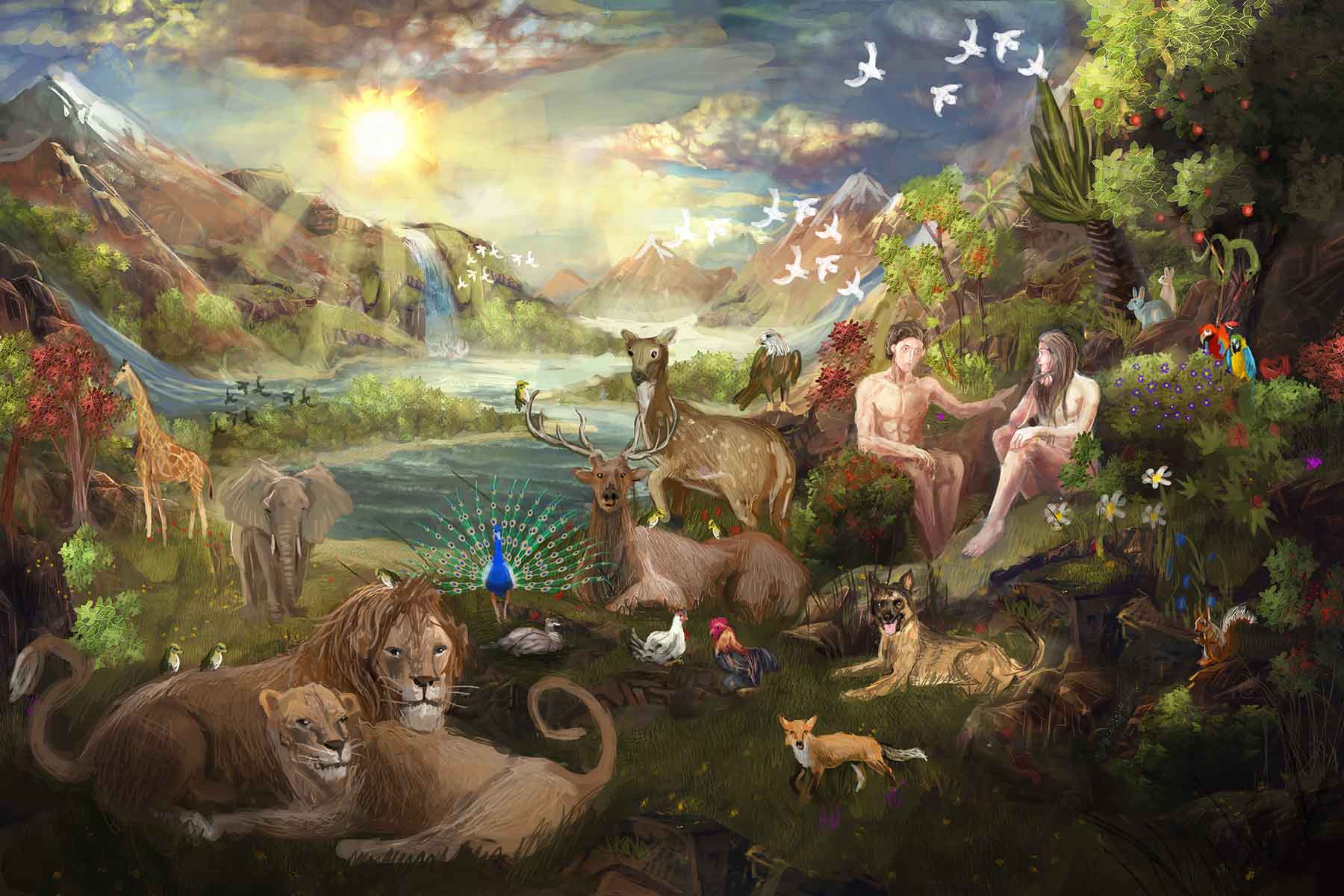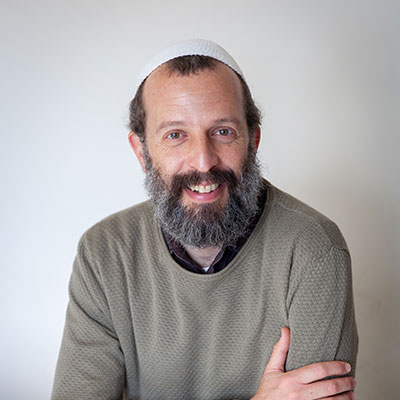By Akiva Gersh
Yom Kippur, the Jewish day of atonement, is a time to be open and honest with ourselves and recognize the mistakes we’ve made over the past year and the chances we didn’t take advantage of to bring more goodness into the world. In the days leading up to Yom Kippur we are encouraged to reach out and apologize to those we have hurt, either through words or through actions.
This year I think it’s about time we add animals to the list of those we apologize to for all the senseless pain and suffering we cause them through our everyday food and lifestyle choices.
But just saying sorry is not enough. Saying sorry to someone you hurt and then continuing to hurt them means nothing. Only when accompanied by real sincere remorse and real change are apologies meaningful and worth anything.
A Vegan Rabbi’s Story
Allow me to introduce myself.
My name is Akiva. If you met me in person you would know within a few seconds, based on how I look and how I dress, that I am a religious Orthodox Jew. But I didn’t grow up in a religious Orthodox Jewish family. I took on the lifestyle when I was 22.
Three years before, in 1995 at the age of 19, I became vegan after learning about the horrors of the meat, dairy, fish and egg industries. And that decision to go vegan had a direct and significant influence on my decision to become Orthodox.
I know that might sound confusing to you, but let me explain.

The Garden of Eden Was Vegan
Many people don’t know that Judaism is replete with teachings, from Jewish law to Jewish mysticism, that demand that we care for the natural environment and show compassion towards animals. The Jewish system of laws and values that cares about how we humans act towards one another is the same system that cares how we treat other creatures that populate planet Earth alongside us, as well as the Earth itself.
We see this right away, at the very beginning of the beginning of the Torah, when we learn that Adam and Eve, while still in the Garden of Eden, were given specific instructions by God about what they were allowed to eat.
And I quote: “And God said, “Behold, I have given you every seed-bearing herb, which is upon the surface of the entire earth, and every tree that has seed-bearing fruit; it will be yours for food.” (Genesis 1:29)
Notice the choice of words in this verse: Seed-bearing. Herb. Tree. Fruit. No burgers or steaks here. The Garden of Eden was a vegan paradise and even when Adam and Eve were kicked out of it their vegan diet remained the rest of their lives. And beyond.
What Foods Does God Permit?
According to the Jewish tradition, humans were not permitted to consume animals until after the flood in Noah’s generation. The reasons for the new diet are explained in various ways by different rabbis throughout the generations, but the fact remains clear: For the first 1,500 years or so after the creation of Adam and Eve, human beings on planet Earth were vegan. Seems like God is trying to tell us something, no?
While God eventually did permit the eating of animals after the Flood in Noah’s generation, (according to one opinion, because humans were no longer on the moral and spiritual level to resist the temptation to eat flesh), it came with restrictions. Right away humans are instructed not to eat the blood of an animal. And after the receiving of the Torah at Mt. Sinai, the Jewish nation was given even more restrictions, primarily regarding which animals they were allowed to eat. And when we look at the list of animals that are permitted to Jews, we notice something very interesting:
They themselves are all herbivores.
The animal kingdom’s version of vegetarianism.
The mystery deepens.
Again, it seems that God is trying to tell us something. But what?
Should Jews Be Vegan?
Here’s how I see it.
I sincerely believe that God and Judaism favor a diet that is free from using animals for food. That’s why it is a vegan diet that is given at the beginning of the human story in the Garden of Eden, the model of perfection in this world, the reality that all of human history has been striving to return to. And while, yes, eventually permission is given to eat meat, it is only after one complies with a long list of detailed and complicated laws. As if God is reminding us that once upon a time humans followed a different diet. And that this original diet still remains a strong option. An ideal option.
But there does seem to be a problem with what I’m saying. Throughout Jewish history we have never seen a great Jewish emphasis on being vegetarian and we’ve never seen a mass movement of Jews living by the Adam and Eve diet. In fact, throughout the thousands of years of our history, Jews have thoroughly enjoyed eating meat. Shabbat tables, holiday feasts and cycle-of-life celebrations from Paris to Persia have always been adorned and made special with an array of meat dishes.
But, as we said, before animals were killed and eaten a long list of laws, of both Torah and rabbinic origin, needed to be followed in order to not only insure that the animal was slaughtered in a kosher manner, but also that the process of raising the animal, up until the moment of death, was done in a way that was mindful and respectful to the inherent value of the life of the animal.
I think it’s worthwhile mentioning some of these laws:
- Feeding your animals before you feed yourself.
- Not causing unnecessary harm or pain to animals.
- Not slaughtering a mother animal and her offspring on the same day.
- Not allowing one animal to witness the slaughter of another animal.
- Slaughter performed by an ordained shochet (ritual slaughterer) who is trained to kill the animal in the quickest way possible in order to minimize the pain of death.
Returning to the Garden of Eden
The way I see it, these ancient Jewish laws serve to infuse some of the idealism of the original vegan diet into the post-Flood diet. To train us to be aware and sensitive to the taking of another life to sustain one’s own. To instill in the consumers of animals a sense of humility and appreciation that another creature is dying in order that they may live, inspiring them to approach the act with mindfulness and sensitivity.
And while I am proud that my people’s spiritual heritage is sensitive to the lives of animals and goes to great lengths to make sure that we treat them well, this system only works in a world that simply doesn’t exist anymore. A world before farms became factories, open fields became cages, and the industrial model of food production was forcibly applied to the lives of billions of animals each and every year.
And the question is: Where is there room for the ancient and thoughtful, sensitive and compassionate Jewish laws of treating animals in this relatively new, industrialized form of meat, dairy, fish and egg production?
The answer is: nowhere.
There is no room available in this over-mechanized, profit-driven structure to think about the lives of the animals. It takes too much time (and taking time means losing money) to think about how they feel and what they feel living in prison-like conditions their whole lives. How they feel being stuffed onto trucks (usually in the middle of the night so people don’t actually see) and brought to industrial-sized slaughter houses, where they are placed on a conveyor-belt- like apparatus that brings them one by one towards the shochet, all the while hearing, smelling and seeing the slaughter of those animals in front of them until their turn comes to meet the knife that will take their lives in a split second, without much thought or emotion, without much meaning or care. Because there’s simply no time for that.
So where does this leave us? Where do we go from here?
Seems to me, back to the beginning. Back to the beginning of the story. Back to Adam and Eve and the diet they were given. A completely vegan diet.





